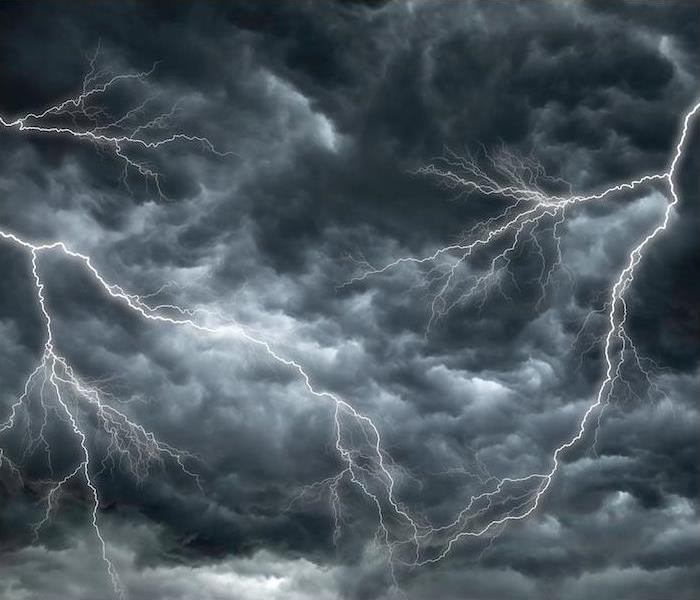The Basics About Lightning
9/9/2019 (Permalink)
When nature assembles into a thunderstorm, there are many aspects of it that can cause damage. While water and flood damage are the most common that come to mind, the risks associated with lightning are also extremely important to discuss.
Though most storms will contain precipitation, all storms contain electricity, and thus the potential for lightning strikes. Lightning bolts can get as hot as 500,000 degrees and be dangerous to properties and fatal to humans. Understanding what lightning is and the damage it causes can help homeowners mitigate their risks.
The Basics of Lightning
Lightning is what we know it by, but the bolts we can see are made of a quick electrical burst, either within the cloud or from the cloud to the ground.
Because the air is a poor conductor, lightning will often seek objects to strike in an attempt to create the path of least resistance to the ground. In the case of house strikes, this path is typically through piping and wiring.
The Dangers of Lightning
There are three main dangers associated with lightning striking a home:
Fire hazards. Houses are made of materials that are easily combustible, making this one of the most common dangers from lightning strikes. Not only can the house immediately catch flame at the site of a lightning strike, but lightning traveling through wiring can damage it, causing fire hazards all throughout the electrical components of the home.
Power surges. Lightning is an electrical charge at its core, and can thus transfer that charge to wiring as it travels. This can create a power surge, damaging any electronic device that is not routed through a surge protector.
Shock waves. Thunder is the most recognizable form of a shock wave, but lightning brings these dangerous currents wherever it goes. These shock waves can be deadly at close range, crumbling structures and shattering windows. This can create significant damage and cause harm in the way of shrapnel, as well.
If your home has been affected by storm damages or lightning-related fires, give us a call at 503-619-6198. We are experts in damage cleanup and can restore your damage quickly.






 24/7 Emergency Service
24/7 Emergency Service
